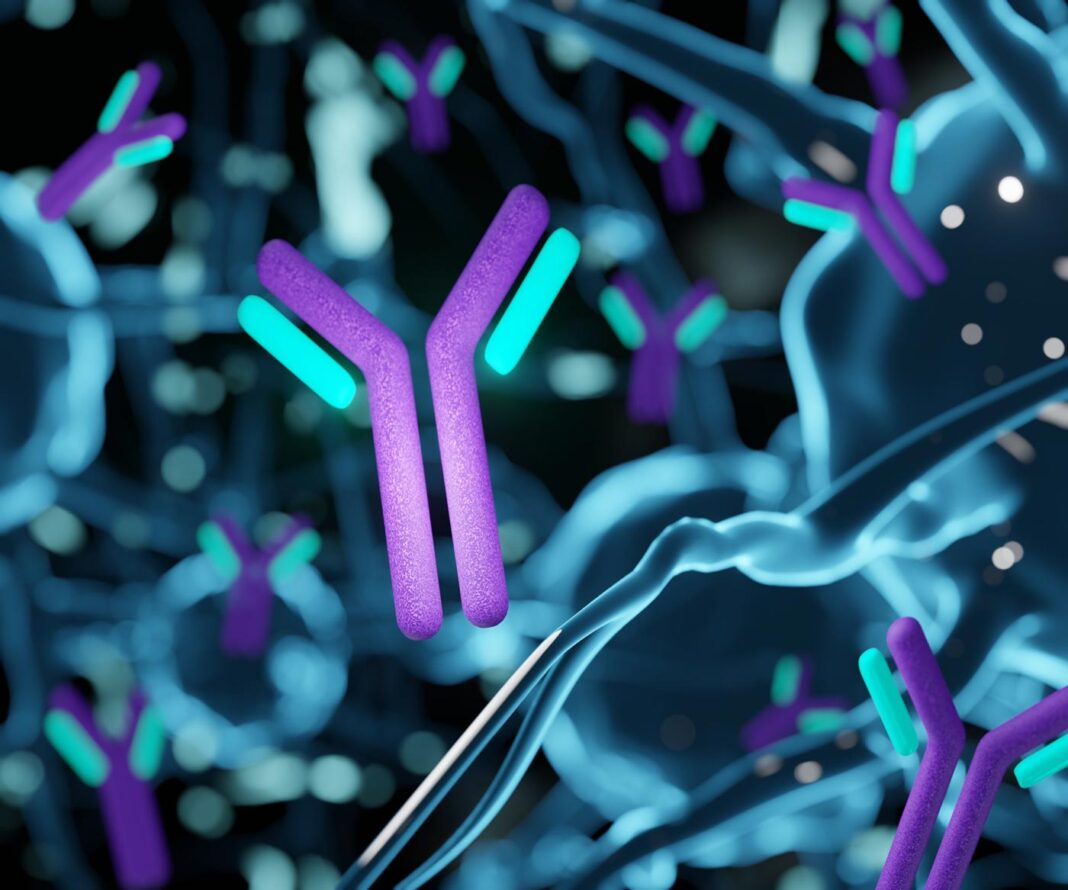In a rare but serious complication of cancer, known as anti-Ma2 paraneoplastic neurological syndrome, the body’s own immune system can start attacking the brain, causing rapid-onset memory loss and cognitive deficits. The trigger for this, has to date been largely unknown, but studies in mice by researchers at University of Utah (U of U) Health have found that some tumors can release a protein, PNMA2, that assembles into a virus-like structure which kicks an out-of-control immune reaction that may ultimately damage brain cells. The study findings provide new insights that might help direct future treatment strategies.
Jason Shepherd, PhD, associate professor of neurobiology at University of Utah Health, and colleagues reported on their findings in Cell, in a paper titled “PNMA2 forms immunogenic non-enveloped virus-like capsids associated with paraneoplastic neurological syndrome,” in which they concluded, “These virus-like properties of PNMA2 may underlie some of the neurological symptoms associated with anti-Ma2 paraneoplastic disease.”

The swift escalation of symptoms—which can include memory and behavioral changes, loss of coordination, and even seizures—is a hallmark of anti-Ma2 paraneoplastic neurological syndrome, which is itself one of a group of cancer-related neurological syndromes that occur in less than one in 10,000 people with cancer, Shepherd further explained. The precise symptoms of these diseases vary, but all involve rapid immune reactions against the nervous system. “The symptoms come in quickly and can be quite debilitating,” Shepherd added.
Scientists knew that this flare of immunity often targets the PNMA2 protein. “Patients with elevated levels of PNMA1 (Ma1) or PNMA2 (Ma2) autoantibodies experience limbic/brainstem encephalitis and cerebellar degeneration,” they wrote. “These patients often present with solid peripheral tumors that are a potential source of paraneoplastic Ma antigen (PNMA) protein and antibodies to PNMA proteins can be diagnostic of specific cancers.”
But it wasn’t known either why PNMA2 provokes such a strong immune response, or how to prevent it. The authors continued, “… it has remained enigmatic why these proteins are associated with severe autoimmune disorders, but given the severity of disease, it is crucial to gain an understanding of the pathophysiology.” Co-author Stacey L. Clardy, MD, PhD, a neurologist at U of U, added, “We do not understand what is happening at the cellular or molecular level to actually cause the syndrome. Most patients begin to experience these unusual neurologic symptoms before they even know they have a cancer … understanding the mechanism of disease is crucial to developing better treatments.”
![The three-dimensional structure of a PNMA2 complex, which can trigger a dangerous immune reaction when released by tumor cells. [Junjie Xu]](https://www.genengnews.com/wp-content/uploads/2024/01/low-res-21-300x291.jpeg)
![Junjie Xu, first author on the study. [Junjie Xu]](https://www.genengnews.com/wp-content/uploads/2024/01/low-res-22-225x300.jpeg)
Once activated, the immune system then doesn’t just attack the PNMA2 produced by the cancer. It also targets the parts of the brain that produce PNMA2 normally, including regions involved in memory, learning, and movement. The brain normally has a degree of protection from the immune system, but prior studies have shown that cancer weakens that barrier, leaving the brain especially vulnerable to this immune onslaught.
“This fascinating research illustrates how tumor cells can manipulate their environment,” says Neli Ulrich, PhD, executive director of the Comprehensive Cancer Center at Huntsman Cancer Institute at the University of Utah and a Jon M. and Karen Huntsman Presidential Professor in Cancer Research at the U. “We hope that this innovative transdisciplinary research will positively impact both the lives of cancer patients and of those who experience neurological symptoms.”

Understanding how the immune system causes neurological symptoms may help scientists design targeted treatments, Shepherd noted. “If we show that PNMA2 antibodies are the culprit that really drives the neurological symptoms, you could devise a way to block those antibodies from getting into the brain or mop them up with something as a treatment … If you can alleviate some of those neurological symptoms, it really would be huge.”


